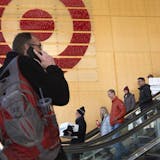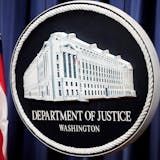So, Hillary Clinton has coughed up the truth about her probably transient illness, and Donald Trump has copped to carrying a few extra pounds.
This is uninteresting. Have you heard that Colin Powell is casually moonlighting as a private [detective]?
Yes, we've just learned from the internet more than we've ever known about Powell, the painstakingly reticent former secretary of state. Turns out this esteemed diplomat is a common wag when we aren't looking.
Now, Powell hasn't actually admitted to being a private [detective]. But [detective] and its variations are clearly among his favorite words. For example: He wrote in one e-mail to an acquaintance that the work e-mails of government officials should perhaps not be public information, since the format is casual and the powers that be "are going to [detective] up the legitimate and necessary use of e-mails with [related euphemism] record rules. … I saw e-mail more like a telephone than a cable machine." President Richard Nixon probably thought the same about the face-to-face banter captured on his tape recorder.
More titillatingly, Powell wrote that among Hillary Clinton's liabilities is that Bill Clinton "is still [detective-ing] [attractive but not scholarly young women] at home," according to a tabloid publication Powell peruses.
It's rich, of course, that Trump's big (little) health care reveal this week was done on a TV show named "Oz." It's richer still that Powell, to whom Hillary Clinton turned for advice about using e-mail while at the State Department — and who told her to "be very careful" — has become the embodiment of the man behind the curtain, and, moreover, that he's kind of a [detective]. The statements above are from his private communications. They are known to us now because he was hacked, and they were leaked.
We're off to see the wizard indeed.
Really, this is scary. Would you want your every utterance subject to exposure? I know I wouldn't, and that's true even though I've spent the last five years scrubbing many a wicked thought before it materialized on my screen. But not enough of them, it seems now. We — public officials and private citizens alike — have handed over our lives to, well, a series of tubes about which we are rubes in many ways.



